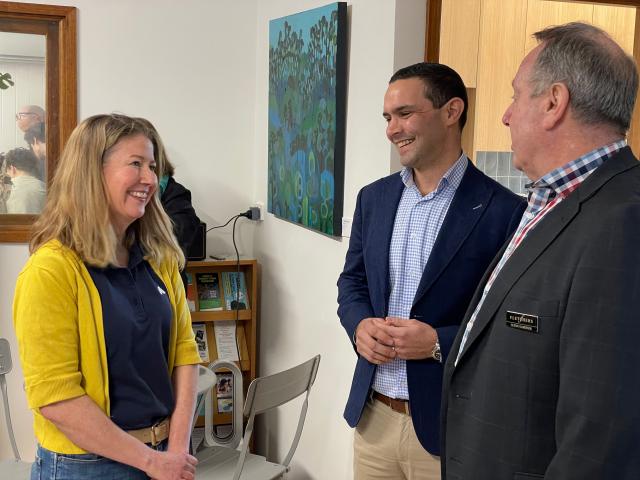Federal Casey MP Aaron Violi criticised the Labor Government’s policy on early childcare as he claimed it does not help solve the shortage of early childcare places in Casey, which is the top priority.
The Federal Government will fund a 15 per cent wage increase for Early Childhood Education and Care (ECEC) workers.
This will be phased in over two years, and include a 10 per cent increase from December 2024 and a further five per cent increase from December 2025.
This means a typical ECEC educator who is paid at the award rate will receive a pay rise of at least $103 per week, increasing to at least $155 per week from December 2025.
Prime Minister Anthony Albanese said the government is trying to ensure early educators are properly valued and fairly paid.
“Early educators shape lives and change lives. We can never thank them enough for what they do,” he said.
“Knowing your child is safe, happy and learning alongside their friends is priceless. Giving the next generation the best start in life is essential. Today we deliver fair pay for the people who make this possible.
“Importantly, this agreement will also keep fees down for families. Our cheaper childcare policy already delivered increased subsidies to over a million families. This will provide even more cost of living relief.”
The Australian Government is providing an estimated $3.6 billion to support a 15 per cent wage increase over two years for the critical ECEC workforce.
Eligible providers will need to apply, with applications expected to open in October 2024.
To be eligible, providers will need to engage staff under a compliant workplace instrument, limit fee increases to no more than 4.4 per cent over the next 12 months to maintain affordability for families from 8 August 2024 and pass all funding to their employees through increased wages.
An Education Department spokesperson said this commitment will help retain the existing early childhood educators, who are predominately women, and attract new employees.
“It will also help make sure ECEC workers are fairly paid without the costs being passed on to families and improve access to high-quality ECEC,” they said.
“This is a win for workers, a win for families and will help ease cost of living pressures.”
Funding will be phased in from 2 December 2024.
Mr Violi said he wants to see higher real wages for all Australians, including the hardworking childhood educators.
“However, Labor promised families cheaper childcare, and yet 12 months on out of pocket costs have increased by 8.4 per cent and there are still no new places for regional and peri-urban communities,” he said.
“In our community, around 16 children are competing for every one childcare place due to a shortage of places.
“I have met with Mums of the Hills and heard firsthand the impact this is having on working families across our community. Parents are having to put themselves on waitlists at their 12-week scans.”
Mr Violi said the Labor Government has ignored the advice from the Australian Competition and Consumer Commission.
“The Australian Competition and Consumer Commission’s childcare inquiry found ‘policy measures that continue to apply an one-size-fits-all approach across the sector will leave some communities under-served, unserved or without adequate and appropriate access to childcare services’,” he said.
“The Albanese Labor Government has ignored this advice by failing to invest in childcare places in our community and continuing their one-size-fits-all approach.
“I will continue calling on the government to increase childcare supply to bring down costs for local families.”
The increase, to be provided through an ECEC Worker Retention Payment, will work on an opt-in basis for all early education providers.
In addition to the conditions, employers that opt-in must also be approved to receive the Child Care Subsidy (CCS) on behalf of their families and provide care in a centre-based environment.
The Education Department is working closely with the Family Day Care and In Home Care sectors to learn how the department can best support their critical workforce and will have more information on this shortly.







